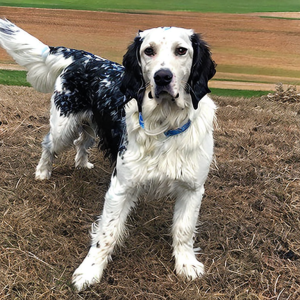
Dog Coughing and Gagging: Causes , Symptoms and Treatment Options
As a dog owner it can be distressing to see your furry friend coughing and gagging . Coughing and gagging in dogs can be caused by various factors ranging from minor irritations to severe health conditions. This article will explore the common causes symptoms and treatment options for dog coughing and gagging.
Understanding the Respiratory System of Dogs
Before delving into the causes and treatment options for dog coughing and gagging its essential to understand the respiratory system of dogs. Dogs have a complex respiratory system that includes the nose – throat – trachea (windpipe)- bronchi and lungs. These organs work together to ensure proper breathing and oxygenation.

Common Causes of Dog Coughing and Gagging
Dog coughing and gagging can be attributed to several factors. It’s crucial to identify the underlying cause to provide appropriate treatment. Here are some common reasons:
Kennel Cough
Kennel cough also known as infectious tracheobronchitis is a highly contagious respiratory infection that can cause persistent coughing in dogs. It spreads when dogs come into contact with infected animals or contaminated surfaces .
Canine Influenza
Similar to kennel cough canine influenza is a viral infection that affects the respiratory system of dogs. It can cause coughing , sneezing , nasal discharge and other flu – like symptoms.
Heartworm Disease
Heartworm disease is transmitted through mosquito bites and can lead to coughing and gagging in dogs. These worms reside in infected animals’ hearts, lungs and blood vessels causing respiratory distress.
Allergies
Like humans dogs can suffer from allergies too. Allergens such as pollen, dust mites, mold or certain foods can trigger an allergic reaction in dogs, leading to coughing and gagging.
Collapsed trachea
Small dog breeds are prone to a condition known as collapsed trachea, where the windpipe becomes narrow or weakened. This can result in chronic coughing and gagging.

Symptoms of Dog Coughing and Gagging
When your dog is experiencing coughing and gagging, it’s essential to observe the accompanying symptoms. The symptoms may vary depending on the underlying cause but can include:
Persistent or intermittent coughing
Gagging or retching
Difficulty breathing
Nasal discharge
Lethargy
Loss of appetite
When to Consult a Veterinarian
While occasional coughing is regular, persistent or severe coughing should not be ignored. It is advisable to consult a veterinarian if you notice the following:
Coughing lasting more than a few days
Coughing accompanied by other concerning symptoms
Coughing in puppies, elderly dogs, or dogs with pre-existing health conditions
A veterinarian will thoroughly examine and recommend appropriate diagnostic tests to identify the underlying cause.

Diagnosing the Underlying Cause
To determine the exact cause of your dog’s coughing and gagging, a veterinarian may conduct various diagnostic tests, including:
Physical examination
Chest X-rays
Blood tests
Tracheal or bronchial wash
Heartworm test
The veterinarian can provide an accurate diagnosis and recommend the most suitable treatment based on the test results.
Treatment Options for Dog Coughing and Gagging
The treatment for dog coughing and gagging depends on the underlying cause. Here are some standard treatment options:
Medications
Medications such as antibiotics, cough suppressants, bronchodilators or antihistamines may be prescribed to alleviate symptoms and target the root cause of the coughing.
Home Remedies
In addition to medication, specific home remedies can relieve a coughing dog. These include keeping the environment free of irritants, using a humidifier, and ensuring your dog gets plenty of rest.
Preventive Measures
Prevention is critical to avoiding dog coughing and gagging. Ensure your dog receives regular vaccinations especially for kennel cough and canine influenza. Additionally keeping your dog away from potential allergens and maintaining good overall health can help prevent respiratory issues.

Providing Comfort to a Coughing Dog
While undergoing treatment , providing comfort to your coughing dog is essential. Ensure they have a quiet and calm environment offer plenty of fresh water and provide a balanced diet that supports their immune system .
Conclusion
Dog coughing and gagging can be caused by various factors ranging from minor irritations to serious health conditions. It’s crucial to identify the underlying cause and seek appropriate treatment from a veterinarian . Remember , early intervention can help prevent complications and promote your dog’s overall well – being.
Frequently Asked Questions
Q1: Can dogs cough due to allergies?
A: Yes, dogs can experience coughing as a result of allergies. Allergens such as pollen, dust mites, or certain foods can trigger an allergic reaction in dogs, leading to coughing and other respiratory symptoms.
Q2: Is kennel cough contagious to humans?
A: No kennel cough is primarily a respiratory infection that affects dogs. It is not typically contagious to humans although rare cases of transmission have been reported.
Q3: How long does a dog’s cough take to go away ?
A: A dog’s cough duration depends on the underlying cause. Mild cases may resolve within a few days, while more severe conditions may require several weeks of treatment and management.
Q4: Can heartworm disease be prevented?
A: Yes, heartworm disease can be prevented through routine administration of preventive medications prescribed by a veterinarian. It’s important to keep dogs on a year-round preventive regimen.
Q5: Are there any breeds more prone to collapsed trachea?
A: Yes , small dog breeds such as Chihuahuas , Pomeranians and Yorkshire Terriers are more prone to collapsed trachea. Proper care, management and regular veterinary check – ups can help mitigate the risk.










Comments
Dog Coughing and Gagging: Causes , Symptoms and Treatment Options
Scottish Fold Cat: A Breed’s Most Famous Gene is the Reason They’re Resilient to Fatal Diseases
Facts about Dogs and Which of Them Are True
Butter Corn Snake : Ultimate Care,Feeding PRO TIPS